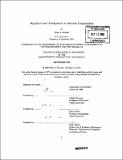| dc.contributor.advisor | Abhijit Banerjee and David Autor. | en_US |
| dc.contributor.author | Schnabl, Peter A. (Peter Andrew) | en_US |
| dc.contributor.other | Massachusetts Institute of Technology. Dept. of Economics. | en_US |
| dc.coverage.spatial | n-mx--- | en_US |
| dc.date.accessioned | 2009-06-30T16:40:01Z | |
| dc.date.available | 2009-06-30T16:40:01Z | |
| dc.date.copyright | 2008 | en_US |
| dc.date.issued | 2008 | en_US |
| dc.identifier.uri | http://hdl.handle.net/1721.1/45929 | |
| dc.description | Thesis (Ph. D.)--Massachusetts Institute of Technology, Dept. of Economics, 2008. | en_US |
| dc.description | Includes bibliographical references. | en_US |
| dc.description.abstract | Migration from Mexico to the United States constitutes one of the world's largest labor flows and generates enormous capital flows in the opposite direction. Corresponding to each of these flows is a distinct view of the role migration plays in local economic development. The optimistic view stresses the role of remittances in stimulating demand and relaxing credit constraints, while the pessimistic view emphasizes the departure of the economy's skilled and motivated workers. Using data from the Mexican Migration Project and exploiting stickiness in migrants' choice of U.S. destination, I examine the effects of migrant demand shocks on business ownership and job choice in Mexican communities. I find little evidence to support the pessimistic scenario. All members of the community, including non-migrants, appear to benefit from improved labor market and business investment opportunities when high U.S. demand induces migrants to leave. Demand for local products rather than credit supply effects seems to be responsible for this outcome. 1 Introduction Since the 1980's, Mexican workers have experienced a rapid expansion in access to the U.S. labor market. By the year 2000, 9.4% of Mexico's total population was living in the United States (Chiquiar & Hanson, 2005), forming one of the world's largest labor flows. Revealed preference suggests we can assume that this migration is beneficial for the migrants themselves; however, its effects on those who remain in Mexico are ambiguous. | en_US |
| dc.description.abstract | (cont.) On the positive side of the ledger, remittances from U.S. migration constitute roughly 20 billion dollars (Banco de Mexico, 2007), or 2% of Mexican GDP. These remittances may feed demand for non-tradable goods produced locally, or they may ease credit constraints and allow capital accumulation to progress. On the negative side, U.S. migration does not attract a random sample of Mexican workers. Transient migrants in particular tend to be young and male, and they might have a different mix of skills and preferences (like risk tolerance) than the general population as well. | en_US |
| dc.description.abstract | (cont.) If migrant workers provide important inputs that complement non-migrants' skills, then their departure could deprive those left behind of economic opportunities. This ambiguity has been reflected historically in Mexico's migration policies at the local, state and national level: while past President Vicente Fox referred to labor migrants as Mexican "heroes", many Mexican governments earlier 'See Chiquiar & Hanson (2005) and Ibarraran & Lubotsky (2007) for evidence that Mexican migrants are positively selected on education and McKenzie & Rappaport (2006) for an alternative view. | en_US |
| dc.description.statementofresponsibility | by Peter A. Schnabl. | en_US |
| dc.format.extent | 165, [3] p. | en_US |
| dc.language.iso | eng | en_US |
| dc.publisher | Massachusetts Institute of Technology | en_US |
| dc.rights | M.I.T. theses are protected by
copyright. They may be viewed from this source for any purpose, but
reproduction or distribution in any format is prohibited without written
permission. See provided URL for inquiries about permission. | en_US |
| dc.rights.uri | http://dspace.mit.edu/handle/1721.1/7582 | en_US |
| dc.subject | Economics. | en_US |
| dc.title | Migration and development in Mexican communities | en_US |
| dc.type | Thesis | en_US |
| dc.description.degree | Ph.D. | en_US |
| dc.contributor.department | Massachusetts Institute of Technology. Department of Economics | |
| dc.identifier.oclc | 320779058 | en_US |
